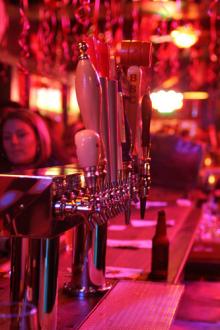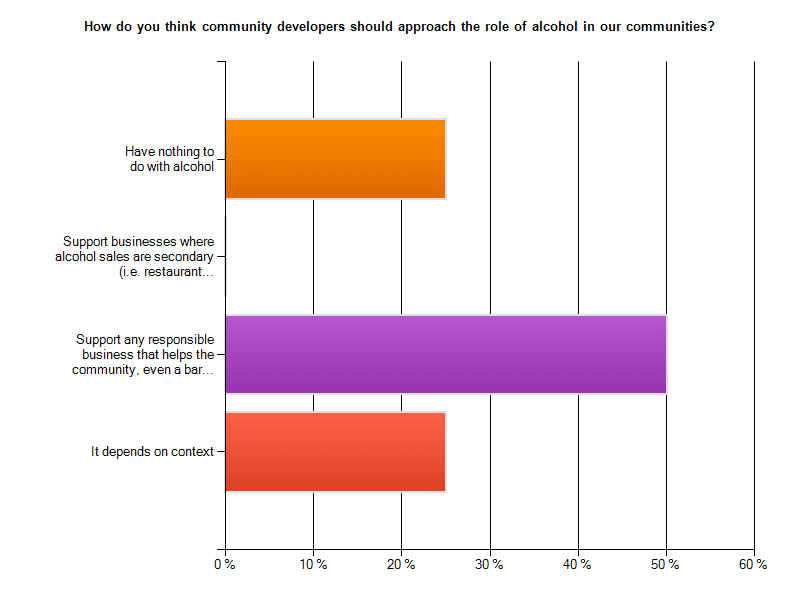Community developers have had, and perhaps still have, a mixed relationship with businesses that serve alcohol.
On the one hand, many have struggled to bring their neighborhoods back from a time when the only businesses around where an over abundance of fast food joints, liquor stores, and bars. Many have organized to shut down bars that weren't good neighbors or liquor stores that were crime hotspots, with data showing marked success.
Many other organizations have done social services work with the addicted, or been founded or funded by religious groups who won't support what are often called “sin-based” businesses, i.e. bars and liquor stores. (One example of many.)
But others, including our own bloggers, have made a call to see bars as valuable third places and meeting spots in their communities. A resurgence of local breweries is seen as part of neighborhood revitalization in many places. Some CDCs own liquor licenses themselves, as with HANDS, Inc. in Orange, NJ, for its restaurant Hat City Kitchen. In an upcoming issue we have an article about a community in the UK organizing to keep its pub, a social center of the village, open. (An Oakland group is even bringing in liquor stores as partners in fighting food deserts.)
In Shelterforce Weekly last week we asked you about your thoughts about alcohol-based businesses. (Not getting the Weekly? Sign up on the right of your screen.) Here's what you picked when presented with annoying multiple-choice responses to a subtle question:
And here are some of the longer, more nuanced things you said:
“There may be good reason to fight a bar business, but there is little good to come from heavy throwing of support for a bar business as eventually the motivations will become apparent. Worse still is outright ownership. Owning bars, hotels and restaurants is more likely to further blur the line between ego and community commitment. A large percentage of these fail or perform poorly, because the initial real reasons for entering the business have so little connection to actually running the business. Neighborhoods that need a fresh and invigorating restart get no help when ego building and/or failure are the major outcomes.”
“It's racist and classist to oppose liquor stores and favor gastropubs and breweries. At the same time, any community has the right to democratically decide that there are two many liquor stores, not enough restaurants, or an unbalanced mix of businesses in their neighborhood retail centers or on neighborhood commercial corridors. Like most things in the community development field, opposing or favoring things outright dogmatically is detrimental, creates division and an imbalance of power, and can lead to marginalized, low income people, and people of color bearing the brunt of neighborhood change – even as other groups benefit. It's best to foster dialogue between stakeholders and encourage understanding across different sectors and points of view, work from consensus – if the community can't agree on one particular action, can they agree to take a different action altogether? – and to activate and engage the public, the residents, particularly those who are marginalized, as they will be most affected by any changes.”
“I almost chose the second option where alcohol is secondary in product sales, but realize that depending on who you are targeting it may or may not be a responsible approach. i.e. Serving yuppie activist/artists that gentrify a neighborhood versus serving unemployed addicted community members.”
“Hard to react to a blanket statement. A neighborhood pub in some communities can be a center of the community, while a corner store in other communities may be a hub of drug and crime activity and need to go.”
If you didn't weigh in yet, what do you have to add?






Comments